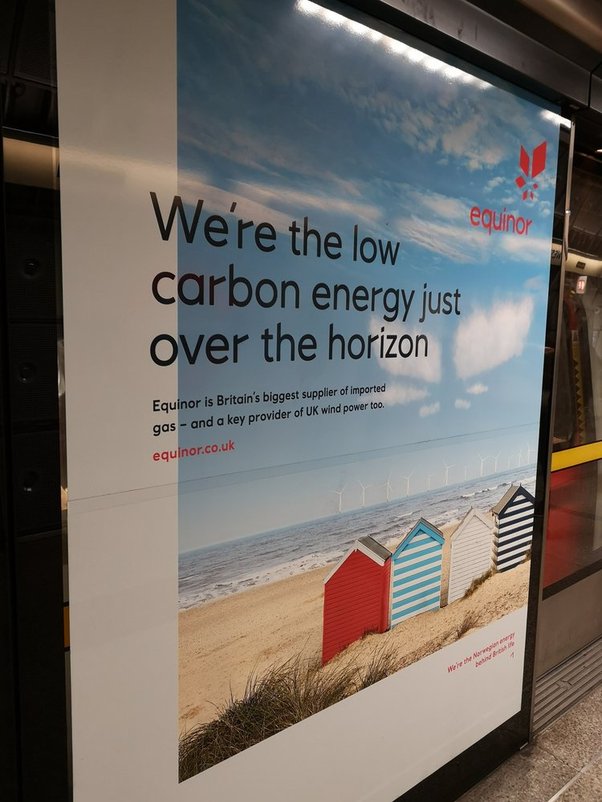Campaigners and cross-party MPs want Big Oil to help pay the bill
The costs of climate breakdown in the UK amount to an estimated £3,000 per household over the course of this year, new research by Global Witness shows.
Rising global temperatures, primarily driven by fossil fuel pollution, are on track to cause an estimated £1.1 trillion-worth of damage to the UK’s economy over the next decade, according to the analysis. Per household, this comes to £38,000 over the same 10 year period. In 2025 alone, households face climate damage costs of £3,000.
The UK's climate damages bill includes the economic costs of flooding, crop losses, sea level rise, droughts, storms, disruption to overseas trade, and harmful impacts on public health that result from global heating.
Households are being hit directly by higher food prices, as climate heating is making extreme weather more frequent and severe, which can damage crop production and push up the price of food. In 2023, the effects of extreme weather alone added an average of £192 to each UK household’s food bill, according to the Energy & Climate Intelligence Unit.
Jeevun Sandher, Labour MP for Loughborough, said:
“Our reliance on fossil fuels is making it harder for families to afford the basics. The high price of gas is leading to higher energy bills and inflation, while the warming of our planet is making food more expensive and is damaging long-term economic growth.
“This double hit is increasing costs for households across the country. Investment in clean energy is the best way to get household bills down and get wages rising, while ensuring we protect our planet for our children, grandchildren and great-grandchildren.”
Ellie Chowns, Green MP for North Herefordshire, said:
“These shocking statistics are a wake-up call, showing just how much we stand to lose if we don’t tackle the climate crisis.
“While communities are bearing the brunt of these costs – whether through flooded homes or higher grocery bills – fossil fuel giants continue to rake in outrageous profits.
“This is clearly wrong. The polluters should pay. The government must use the tax system to ensure that fossil fuel giants bear the costs of the damage they cause.”
Bell Ribeiro-Addy MP, Labour Member for Clapham & Brixton Hill, said:
"These figures highlight the hidden costs of fossil fuels, which are already being borne by UK households. It can’t be right that fossil fuel companies profit from polluting our planet whilst expecting working people to bear the huge costs of climate breakdown.
“The government must make polluters pay to deliver a just transition and ensure working people are not the only ones shouldering the costs of climate breakdown."
Dominic Eagleton, senior campaigner with Global Witness, said:
“UK households are already paying the price of climate breakdown, with the effects of fossil fuel pollution driving more intense storms, flooding and heatwaves at home and abroad.
"The fossil fuel companies most responsible are not only raking in billions in profit but also face no obligation to pay for the climate damage their businesses cause.
“The UK government needs to shift this burden from people onto big polluters. And climate damage costs would be much lower if governments took stronger action to tackle global heating, including a fair and fast shift from fossil fuels to green energy.”
Colin Chappell, Lincolnshire farmer, member of the Nature Friendly Farming Network and flooding victim said:
“We all rely on farmers to put food on our table, but in the UK, climate-change driven extreme weather is making our jobs significantly harder, and that affects everyone.
“Last year my farm – which produces enough milling wheat for 800,000 loaves – suffered the mother of all floods which meant I lost over half our entire wheat crop. I wasn’t alone – last year the UK experienced its worst wheat harvest in 40 years. These kind of climate-driven shocks are only getting more frequent, with knock-on effects for families up and down the UK – when harvests are down, we’re forced to rely on more expensive food imports.
“Farmers and households shouldn’t have to suffer these increasingly unbearable price shocks alone.”
Oil firms operating in the UK, including Shell, BP, TotalEnergies, Exxon and Chevron, are on track to make more than £56 billion in pre-tax profits from extracting oil in the UK North Sea over the next 10 years, according to forecasts from Rystad Energy.
Global Witness is calling on the UK government to ensure some of these profits help communities to cover the costs of climate damage, and to support workers’ transition from high-carbon to green jobs in the UK.
Legislators in several states in the USA, including California, Vermont and New York, have adopted or proposed laws that require fossil fuel companies to fund climate action projects within those states, including to compensate local communities for damage costs. These measures, however, are coming under attack from fossil fuel lobbyists.
Global Witness’s analysis builds on cutting-edge research from the Grantham Research Institute on Climate Change and the Environment at the London School of Economics. This estimates the economic costs of climate heating in the UK against a scenario with no global temperature rises, and factors in potential benefits for the UK from higher temperatures such as new agricultural production.
The Grantham study estimates the UK’s climate damage costs under two scenarios. One assumes current global policies are maintained and no further measures are taken, which Global Witness used for this analysis. The other assumes stronger policies are introduced to tackle global heating.
The authors state that their results are conservative, likely lower-bound estimates of the costs of climate change to the UK.
Recent modelling by the Climate Change Committee shows that cutting the UK’s emissions by 87% by 2040 would help reduce household costs by £1,400 a year by 2040, as the transition to cheaper renewables brings down heating and motoring costs.
Notes and methodology
Global Witness’s analysis is based on recently updated data produced by the Grantham Research Institute on Climate Change and the Environment. The original dataset was used in J Rising et al (2022) "What will climate change cost the UK? A study of climate risks, impacts and mitigation for the net-zero transition", London: Grantham Research Institute on Climate Change and the Environment, London School of Economics and Political Science.
The Grantham study projects UK climate damage costs as a percentage of UK GDP from 2022 to 2100. The calculations are based on climate scenarios developed for the IPCC’s Sixth Assessment Report, and assume GDP and population growth rates continue along the same trend as in recent decades.
We used the updated Grantham data to identify the projected UK climate damage costs under a current policies scenario from 2025 to 2034 (£1,125,762,482,000, in 2023 GBP). We divided this by the projected average number of UK households over this period (29,434,000) to find the average cost per household (£38,247). Using the same methodology for 2025 only, the cost comes to £3,003 per UK household.
The Grantham study finds that under current global policies, the total cost of climate change damages to the UK are projected to increase from 1.1% of GDP in 2022 to 3.3% by 2050, and at least 7.4% by 2100. With strong global action to mitigate climate heating, the projected damage costs to the UK fall to 2.4% of GDP by 2100.
Oil companies’ UK production profits were accessed from Rystad Energy’s UCube database, January 2025. Production profit, or "free cash flow", is revenue flowing to companies from oil and gas projects after taxes and royalties, capital expenditure and operating expenditure are accounted for, and before company-wide costs such as debt service and shareholder dividends are taken from these revenues.
Global Witness is grateful to James Rising, assistant professor at the School of Marine Science & Policy, University of Delaware, for providing access to the climate damages dataset and advising on its use.



